Recruiting and Retaining Disabled Employees
Did you know that according to the World Economic Forum, ONE BILLION people worldwide live with some form of disability; yet their value is often overlooked by businesses. There may be several reasons for this, to include a lack of knowledge and understanding; however, pleasingly, more and more employers are striving to ensure that “disability inclusion” is on their agenda. Employers are starting to recognise that by embedding inclusion and accessibility into their recruitment processes, this opens up avenues for talented people from all walks of life, and gives equal access to all.
In addition to existing disabilities when entering into the world of work, it is estimated that approximately 70% of employees will become disabled during employment, rather than starting their working life with an existing disability. In all circumstances however, what is important to note is that where a newly acquired, or a deterioration of an existing disability begins to impact on an employee’s health and wellbeing, and on safe and effective performance, the law imposes an obligation on businesses to consider the implementation of one or more reasonable adjustments to either avoid or mitigate the health, safety, wellbeing, and performance concerns.
Case law has established the importance of management seeking expert Occupational Health and other relevant guidance when determining what adjustments might be reasonable, safe and effective, balancing the needs of both the employee and employer.
At TJM Occupational Health and Wellbeing, we truly believe that everyone has something to give, and those who are less able than others will often have similar learnt, transferable and key skills to offer just as a more abled person will – albeit these skills may be executed in a different way. However, we also appreciate that there will be times when an individual simply isn’t suited to a specific role, particularly when there are safety critical aspects to consider.
An individual’s lack of suitability for a certain role in relation to their disability can be due to a number of reasons such as a physical, and / or a psychological limitation. If this results in an individual’s inability to independently, and safely and effectively undertake the tasks required, particularly if the tasks associated with the role are physically or emotionally demanding, this cannot be ignored.
In these situations, we understand that businesses may struggle with what to do and how to respond, and this is where we can help. Whilst we feel strongly that with the right support, the right resources, and with the right mindset, people with a disability can achieve, and can be successful in their work, we are also realistic. As such, we ensure a pragmatic, open and transparent, and respectful approach when it comes to assessing and advising on an individual’s fitness and suitability to a particular role, and this is especially pertinent when there are safely critical elements to consider.
We are adequately equipped to provide you with all appropriate advice, guidance, and where required, a determination on whether an individual with a disability is deemed fit to safely undertake a certain role, or not. We can support you with:
- Specialist Occupational Health advice regarding fitness for role, reasonable adjustments, and your obligations under certain legislation; such as your obligation towards risk assessments, and regarding the Equality Act 2010 for example.
- Education, and awareness around “Myth busting” – this is particularly important for some managers and supervisors who may feel daunted by the idea of managing and supporting someone for the first time who has a disability. They may be (understandably) concerned about saying the wrong thing or making sure they are able to provide adequate support. Simply by “myth-busting” and educating managers, this can equip them with the confidence and knowledge needed to support employees who are less able than others.
- Raising awareness around unconscious bias – some employees without a disability may be unaware of the needs and support required for colleagues who may have a disability, and in raising awareness amongst your workforce on the difficulties people with disabilities might face at work, this will help to highlight things that all employees could be, and should be considering.
- Collaborating with / facilitating onward contact / referrals to Specialist Agencies.
It’s important to remember that just because somebody has a disability, this does not mean that they will be less intellectual than other more able people. Further, not all disabilities are the same for everyone, and therefore each person’s needs will be individual to them. Where an employee with a disability is deemed fit for the role in which they have applied, with or without adjustments, getting to know the person behind their “disability” or their “disability label” is the most important first step you and your managers can take in exploring, and truly understanding your employee’s potential.
If you would like further information on how we can support you with the recruitment and retention of employees with a disability, and how we can support the needs of your employees, and your business, please do not hesitate to get in touch.
Please note: We can also assist with bespoke advise, guidance and support for employees with neuro-divergent conditions such as Attention Deficit Hyperactivity Disorder (ADHD), Dyslexia, and Autism.



